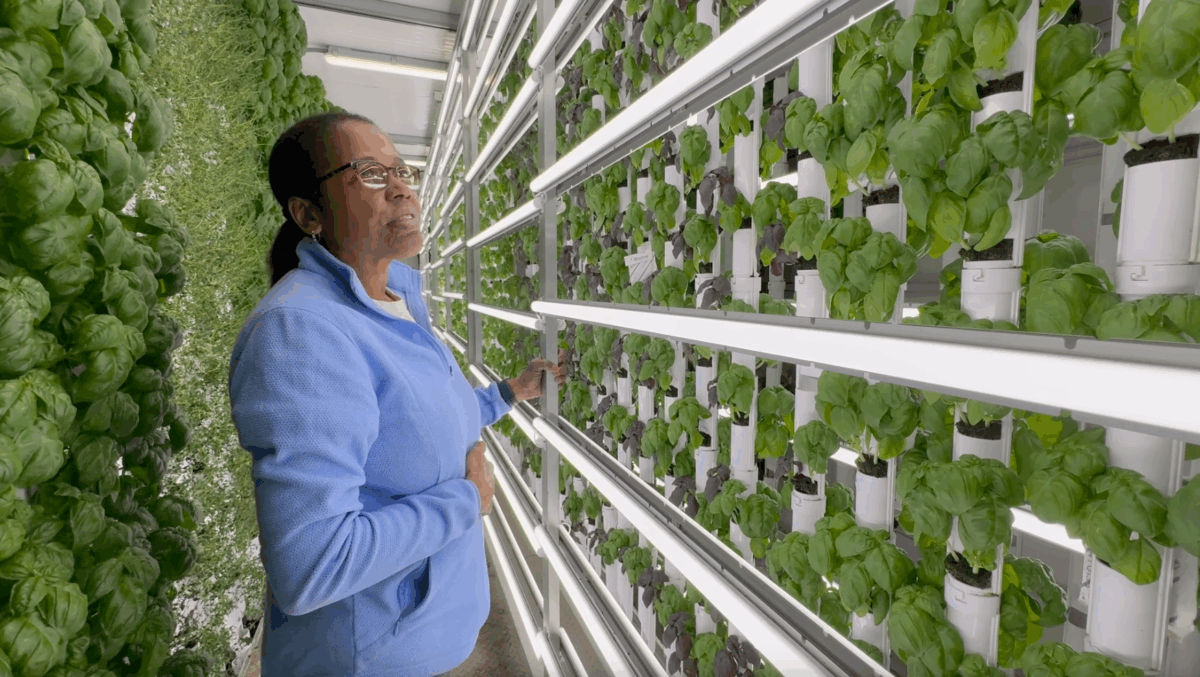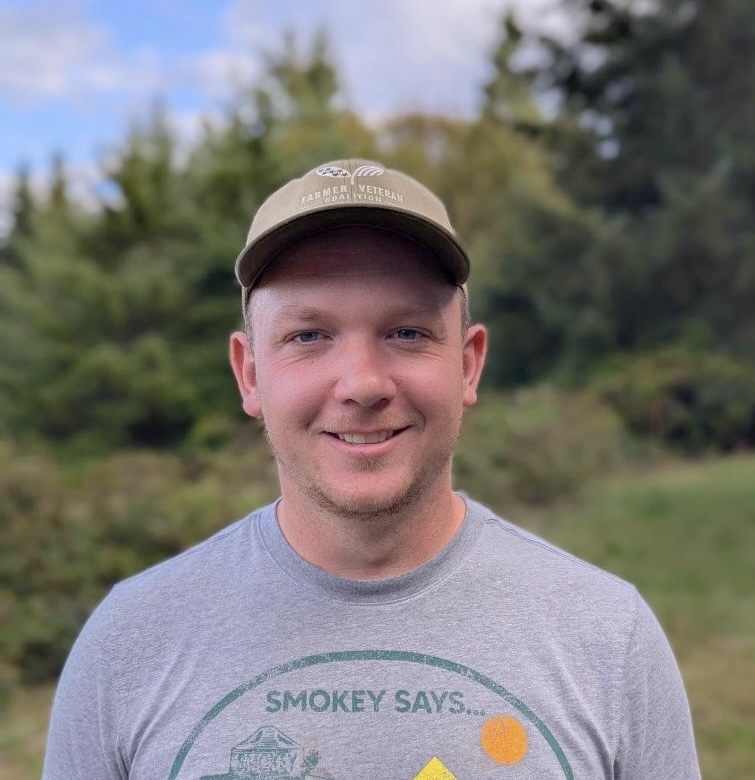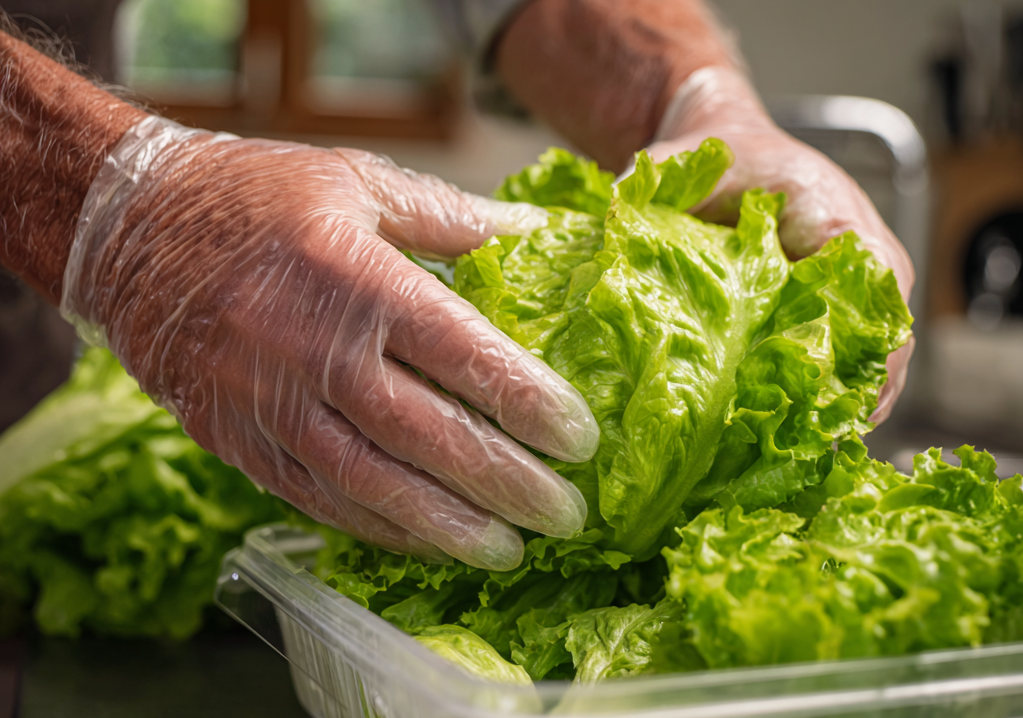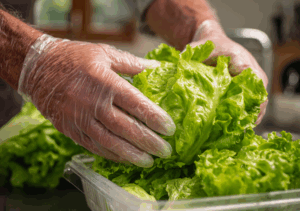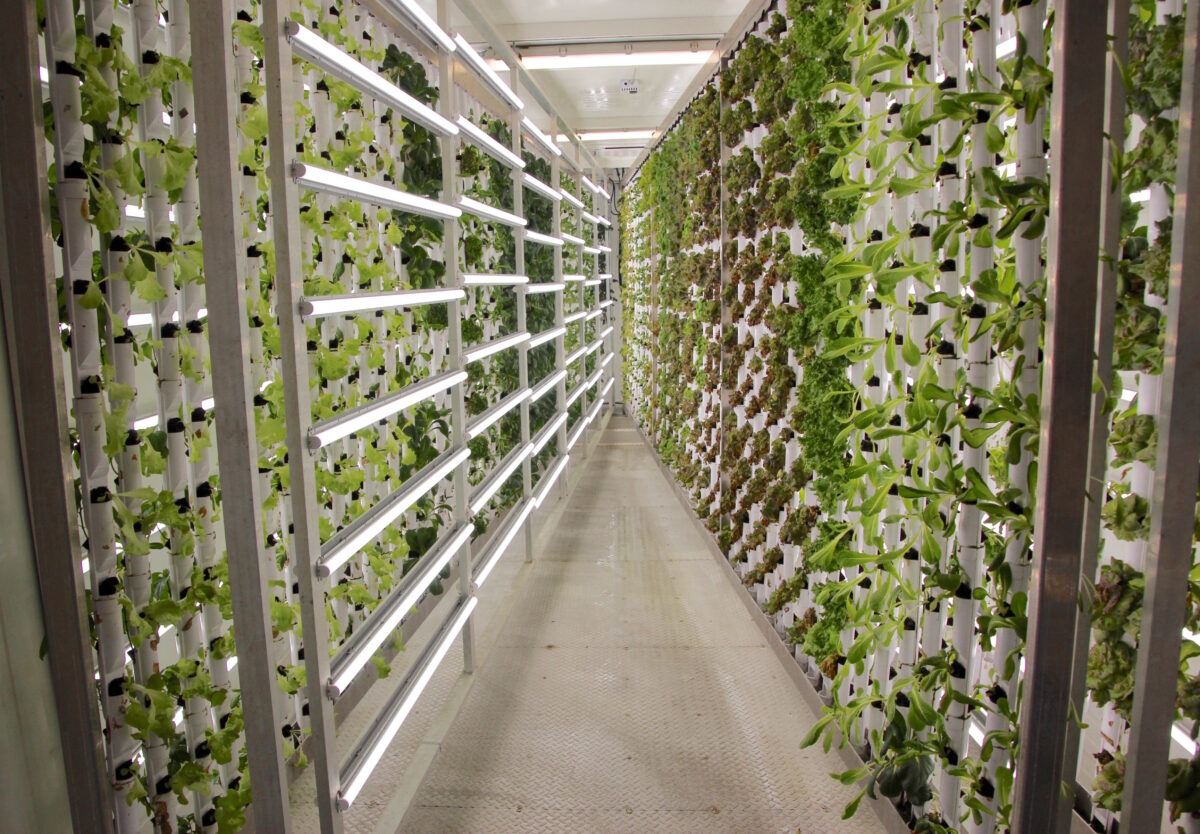Gerard and Jesse Holodak are the husband-and-wife team behind Koa Mushrooms and Rainier Roots Farm, a veteran-owned family farm nestled along the Columbia River in Rainier, Oregon. Both former U.S. Army officers, they bring the same spirit of service and resilience that guided their military careers into their mission of farming. Gerard served in Civil Affairs, while Jesse specialized in logistics, experiences that continue to inform their strategic and community-focused approach to agriculture.
Gerard, a mushroom farm sales rep for FarmBox Foods and soon-to-be owner of a Gourmet Mushroom Farm, grew up surrounded by farmland in Vermont and Oregon. His childhood was steeped in the daily rhythm of agriculture: raising chickens, tending mixed vegetable plots and spending long days helping out in the barn.
“I basically lived in the barn,” he recalls. “I loved it when I was younger.”
That early connection to the land laid the foundation for a life defined by service, first in uniform and later through farming. Answering what he says was a “call to service,” Gerard joined the U.S. Army with a desire to help people and be part of the solution. He spent nearly 13 years in Civil Affairs, a branch that acts as a bridge between military forces and civilian populations in conflict zones. His work centered on stability operations and humanitarian aid, often coordinating with the United Nations and USAID to deliver food, water and shelter in regions struggling with basic needs.
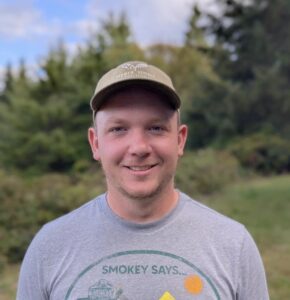
While deployed, Gerard worked in food-insecure rural areas around the world, observing the critical link between agriculture and stability. Those experiences deepened his conviction that sustainable food systems are a cornerstone of peace. That element of civil operations — preventing conflict through stability — was fulfilling, he says.
“After the military, I wanted to continue serving by helping feed people and build communities,” Gerard said.
After medically retiring, Gerard began exploring ways to combine his agricultural roots with his passion for service. He earned a Master’s degree in Civil – Military Interaction and is currently pursuing a master’s in Sustainable Agriculture from Sam Houston State University. The transition to farming was a natural evolution. While still in Hawaii, Gerard and Jesse launched Koa Mushrooms out of their garage on Hickam Air Force Base, selling at local farmers markets and partnering with the Farmer Veteran Coalition to expand. They soon began collaborating with local farmers to create a more permanent mushroom operation, eventually supplying restaurants, stores and wholesale restaurant food distributors.
Their success in Hawaii inspired a new chapter in Oregon, where they founded Rainier Roots Farm. Today, the Holodaks cultivate just under 20 acres, with about a half-acre currently in production. They grow root vegetables like beets, turnips and carrots, along with red cabbage, squash and other winter crops. Their orchard produces apples, plums, pears, peaches and heirloom fruits such as quince, persimmons and apricots. The couple practices no-till agriculture and permaculture, with plans to rewild portions of their land to restore habitat and biodiversity.
As former Army officers, Gerry and Jesse’s lives were dedicated to caring for soldiers and their families, preparing them to face tough missions and recover afterward. That sense of duty didn’t end when we hung up the uniform — it’s what drives their work now. In addition to building a market for fresh produce, they have worked to perfect dried medicinal mushrooms and are looking to partner across the US with veteran-focused coffee, tea, and beer companies to provide functional mushrooms like pre-activated Reishi and Lion’s Mane to help veterans and first responders combat the detrimental effects of stress and trauma in their path toward wellness for them and their families. We want to continue serving by helping veterans and first responders rebuild strength, focus, and resilience through nutrition and community connection.
Their goal for the coming year is to have the storefront open by spring, providing a space for local farmers to sell their crops and strengthen the local food economy.
(Contact Koa Mushrooms at 571-633-4024 or koa.mushrooms@gmail.com)
In addition to managing the farm, Gerard is ready to take delivery of a Gourmet Mushroom Farm made by FarmBox Foods, helping to advance containerized growing technologies for both commercial purposes and humanitarian projects. His background in Civil Affairs and agriculture aligns perfectly with FarmBox’s mission of enabling food security anywhere in the world, even in regions affected by climate change or resource scarcity. He’s particularly determined to see how mobile, modular farming systems can help positively impact island nations facing rising sea levels sustain their food supply.
Gerard and Jesse’s work is guided by a simple philosophy: that farming is an act of service. Their dedication to sustainable agriculture and community resilience reflects the same values that defined their military careers: commitment, adaptability and care for others. Together with their three daughters, Charlotte, Madeline and Juliet, they’re cultivating more than crops; they’re growing a future rooted in service, sustainability and shared prosperity.

